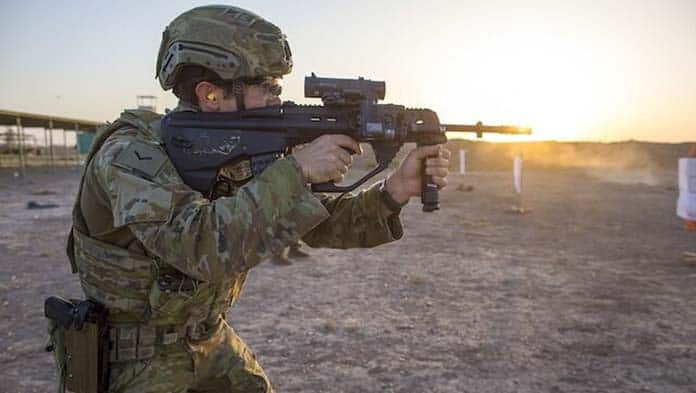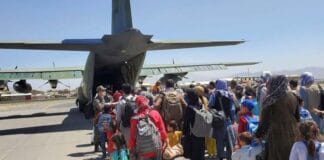The barbarity of Australia’s role in Afghanistan was laid bare late last year, with the release of the Brereton report into war crimes by Australia’s much-vaunted elite SAS regiment.
Twenty five current and former soldiers are alleged to have perpetrated 39 cases of war crimes against civilians or prisoners. Some 19 soldiers will be referred for possible prosecution. The report is deliberately based on evidence SAS members were compelled to give, so that it is inadmissible in court.
Practices included allocating junior officers a “first kill” where they would execute a civilian in a practice called “blooding”, and the planting of evidence on slain civilians to make out they had been armed or aiding the Taliban, using weapons known as “throw downs”.
Two 14-year-old Afghan boys had their throats cut and bodies dumped in a river; a man known as Dad Mohammed was shot while lying down in a wheat field in 2012; and an intellectually disabled man in his 20s was executed in what became known in SAS circles as “the village idiot killing”.
Confirmation of the atrocities is a tribute to Afghan village elders and the Afghanistan Independent Human Rights Commission for continuing to document and raise the issue of civilian deaths.
The evidence was dismissed for years by Australian military commanders.
An Australian army lawyer who raised the issue publicly, David McBride, still faces life imprisonment as a whistle-blower. Morrison had the Australian Federal Police raid the ABC and threaten journalists with jail for exposing the war crimes.
All this horror is a direct result of the imperialist occupation of Afghanistan by the US and its allies, including Australia.
While the chief of the Australian Defence Force, General Angus Campbell, apologised to the people of Afghanistan and Australia, he maintained the fiction that, “Afghans asked us to their country to help them.”
This is clearly not the case. The US invaded Afghanistan in 2001 and installed a stooge government, under Hamid Karzai, who then gave approval to the US to remain in the country, after the fact.
The war was justified as a “humanitarian intervention” for democracy and women’s rights against the Taliban government, who were accused of harbouring Osama bin Laden in the wake of 9/11. But the US supported Afghan warlords who were every bit as brutal in their effort to oust them.
The occupation has made life hell for ordinary Afghans, bringing terrible violence and death.
In the last ten years alone there have been over 100,000 civilians killed or injured. The UN recorded 5939 civilian casualties in the first nine months of 2020.
The occupying forces were so brutal that the Taliban was able to rebuild their support. The Australian government also turned its back on refugees from the country, torturing them on the prison islands of Manus and Nauru.
Imperialism
The war was only ever about power and imperialism. Afghanistan became an open-ended occupation because of its geo-political importance to the US, situated alongside its imperial rivals Russia and China.
Afghanistan has the misfortune of lying on one of the fault-lines where the rivalry between great powers is concentrated.
In the 19th century Lord Curzon, British Viceroy of India, coined the term “The Great Game” to describe the rivalry between Britain and Russia over the region. The British invaded Afghanistan three times in 1839, 1879 and 1919.
The 2001 invasion provided the US with an opportunity to create a string of military bases in Central Asia, in a region dominated by Russia during the Cold War.
General Colin Powell, US Secretary of State under George Bush Jnr, boasted in February 2002, “America will have a continuing interest and presence in Central Asia of a kind we could not have dreamed of before.”
But apart from its bases inside Afghanistan, the US has now surrendered the rest.
Australia joined the war not as a lackey of the US but as part of advancing our rulers’ own imperialist interests, both in dominating the local region and in protecting the investments of Australian companies worldwide.
Australia’s rulers have long sought to lock in the US as an imperial partner in furthering these aims.
As Paul Kelly, editor of The Australian, wrote in August 2002, “For half a century, the Australian way of war has been obvious: it is a clever, cynical, calculated, modest series of contributions as part of US-led coalitions, in which Americans bore the main burden. This technique reveals a junior partner skilled in utilising the great and powerful in its own interest, while imposing firm limits upon its own sacrifice.”
The West is not part of the solution in Afghanistan. The atrocities are further evidence of why it should leave.
By Tom Orsag






